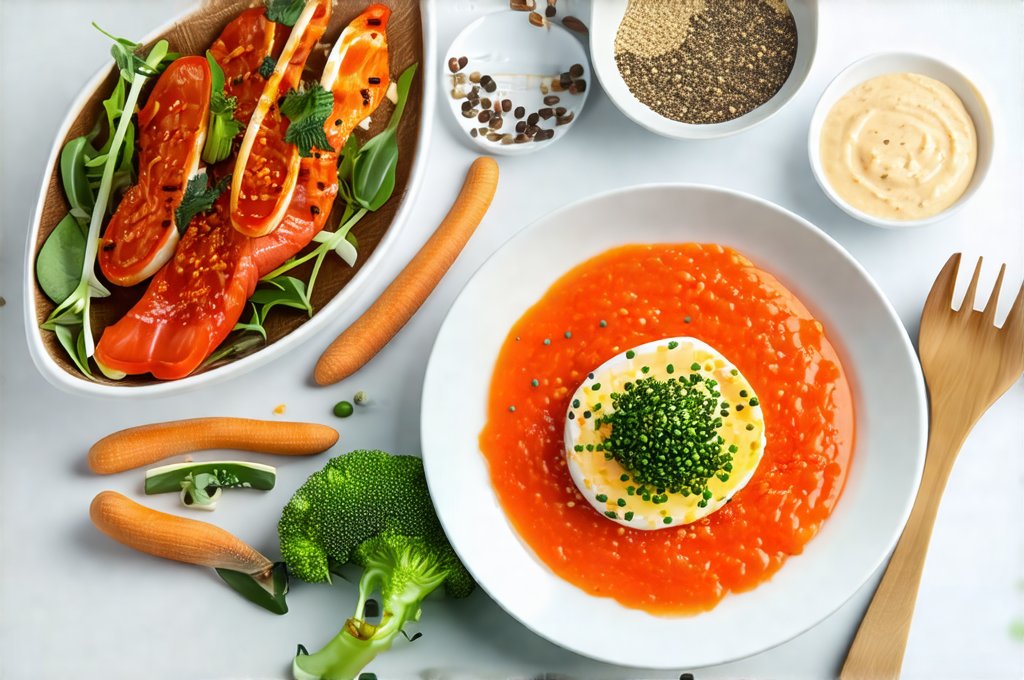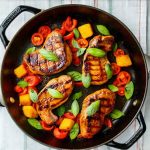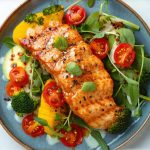Life’s relentless pace often leaves us scrambling for quick food solutions, but these hasty choices can frequently wreak havoc on our digestive systems. The modern diet, already filled with processed foods and potential irritants, gets further complicated when we’re stressed, rushed, and lacking the time to prepare nourishing meals. Many individuals experience bloating, discomfort, or even more serious issues like heartburn or IBS flare-ups as a direct result of quick, ill-considered eating habits during busy periods. It’s not about restrictive dieting; it’s about making informed choices that support gut health even when time is short and convenience seems paramount.
The key lies in understanding how our bodies respond to different foods under stress. When we are stressed or pressed for time, digestion can be compromised, meaning food isn’t broken down efficiently. This can lead to fermentation and gas production, causing uncomfortable symptoms. Moreover, the types of foods we gravitate towards when busy – often highly processed snacks or fast food – tend to lack fiber, essential nutrients, and probiotics that are vital for a healthy gut microbiome. Prioritizing easily digestible options and mindful eating practices is not merely about symptom relief; it’s about investing in long-term wellbeing and maintaining a resilient digestive system capable of handling the demands of modern life. You can learn more about how to eat out without worry, too!
Navigating Quick & Gut-Friendly Meals
The challenge isn’t necessarily avoiding convenience foods, but rather choosing smarter versions and pairing them thoughtfully. A quick meal doesn’t have to mean sacrificing nutritional value or triggering gut distress. One common mistake is focusing solely on speed without considering the impact of food combinations. For example, combining high-fat foods with large amounts of simple carbohydrates can slow digestion and exacerbate bloating. Instead, aim for balanced options that incorporate lean protein, complex carbohydrates, and healthy fats in moderate portions. This provides sustained energy without overwhelming your digestive system.
Consider pre-planning when possible – even a little bit of preparation can make a huge difference. Batch cooking on less hectic days, prepping ingredients like chopped vegetables or cooked grains, or simply stocking up on gut-friendly staples can streamline meal assembly during busy periods. This doesn’t need to be elaborate; it’s about creating easy access to healthier choices. Thinking ahead also helps avoid impulsive decisions driven by hunger and convenience, which often lead to regrettable food selections that your gut will later protest. Learning how to handle gut health during busy days can make a big difference!
Furthermore, hydration is paramount. Often when we are rushed, water intake gets overlooked. Dehydration can slow down digestion and contribute to constipation, exacerbating gut issues. Keeping a water bottle readily available and sipping throughout the day – even small amounts frequently – is a simple yet powerful way to support digestive function. Herbal teas like ginger or peppermint can also be soothing for sensitive stomachs.
Prioritizing Easily Digestible Foods
Certain foods are inherently easier on the gut than others, especially when your digestive system is already under pressure. Low-FODMAP foods are often a good starting point for individuals with sensitivities, but even without diagnosed issues, they can be beneficial during busy times. These include:
- Cooked vegetables (e.g., carrots, spinach, zucchini) – avoid raw cruciferous vegetables like broccoli or cauliflower if you’re sensitive
- Lean proteins such as chicken breast, fish, or tofu
- Gluten-free grains like rice, quinoa, or oats
- Fruits low in fructose such as blueberries and bananas
Avoiding excessively spicy foods, greasy fried items, and large quantities of caffeine or alcohol can also help prevent irritation. Fermented foods, in small amounts, can be incredibly beneficial for gut health, but introduce them gradually to assess tolerance, as some individuals may experience initial discomfort. Yogurt with live cultures (if dairy is tolerated), kefir, sauerkraut, and kimchi are all excellent options. It’s helpful to know what to eat when your gut is inflamed, too.
When choosing snacks, opt for whole, unprocessed foods over packaged alternatives. A handful of almonds or walnuts, a small portion of fruit paired with nut butter, or plain yogurt with berries can provide sustained energy without the digestive distress often associated with sugary or processed snacks. Remember, snacking shouldn’t be about filling gaps with empty calories; it should be about nourishing your body between meals.
Mindful Eating on the Go
Even if you’re eating a healthy meal, how you eat matters just as much as what you eat. Rushing through meals and barely chewing food puts an extra burden on your digestive system. It forces your gut to work harder to break down larger particles of food, potentially leading to bloating and discomfort. Practicing mindful eating – even in short bursts – can significantly improve digestion.
- Slow Down: Take a few deep breaths before you start eating. This helps activate the parasympathetic nervous system (the “rest and digest” response).
- Chew Thoroughly: Aim to chew each bite 20-30 times. This not only aids digestion but also allows your body to register fullness, preventing overeating.
- Minimize Distractions: Turn off the TV, put away your phone, and focus on your meal. Paying attention to the texture, flavor, and aroma of your food enhances enjoyment and promotes better digestion.
If you’re eating on the go, take a few minutes to sit down and focus on your meal rather than trying to eat while multitasking. Even a five-minute break can make a world of difference. If sitting isn’t possible, find a quiet space where you can at least slow down and concentrate on chewing your food properly. You might also consider how to eat more without upsetting your stomach!
Simple Meal & Snack Ideas for Busy Days
Here are some quick and gut-friendly meal and snack ideas that require minimal preparation:
- Breakfast: Oatmeal with berries and a sprinkle of nuts; Smoothie made with banana, spinach, almond milk, and protein powder
- Lunch: Salad with grilled chicken or fish, quinoa, and avocado; Leftovers from dinner (batch cooking is key!)
- Dinner: Sheet pan meal with salmon, roasted vegetables (carrots, zucchini), and a side of brown rice.
- Snacks: Apple slices with almond butter; Plain yogurt with blueberries; A handful of almonds or walnuts; Rice cakes with avocado.
It’s important to remember that gut health is highly individual. What works for one person may not work for another. Paying attention to your body’s signals, identifying trigger foods, and making gradual changes to your diet are essential steps towards building a resilient digestive system that can thrive even on the busiest of days. If you find yourself struggling, it might be useful to learn how to eat gut friendly even when busy! And remember to consider energy levels.


















